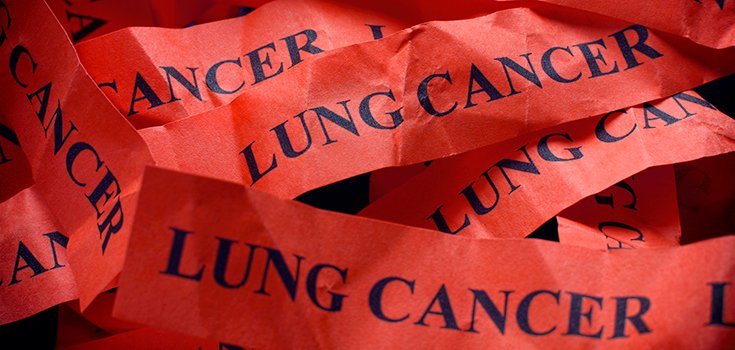Study Links Diets High in Saturated Fat to Lung Cancer

Researchers point out a correlation between saturated fat consumption and lung cancer, suggesting that people who eat a diet high in saturated fat (found in butter and beef) have a greater risk of developing lung cancer than those who eat a low-fat diet. Smoking increases the risk even further. [1]
Researchers found that study participants who ate the most total fat and saturated fat were 14% more likely to go on to have the disease, compared to those who limited their fat consumption. The risk also increased 15% among current and former smokers, the study found.
Study co-author Danxia Yu, of Vanderbilt University Medical Center, said the very best way to prevent lung cancer is to simply not smoke, but added that eating a healthy diet most likely lowers the risk, too.
She said:
“Specifically, our findings suggest that increasing polyunsaturated fat intake while reducing saturated fat intake, especially among smokers and recent quitters, may (help prevent) not only cardiovascular disease but also lung cancer.”
According to the American Heart Association (AHA), people can help prevent cardiovascular disease by eating either a Mediterranean-style diet, or the Dietary Approaches to Stop Hypertension (DASH) diet. Both types of eating patterns emphasize cooking with vegetable oils containing unsaturated fats, and copious amounts of fresh fruits, vegetables, whole grains, fish, and poultry.
Both diets encourage limiting red meats, added sugars, and salt. There is, however, evidence to suggest that high-fat healthy oils such as olive oil are safe to consume as part of a Mediterranean-style diet.
For the study, published July 25, 2017 in the Journal of Clinical Oncology, researchers looked at data on 1,445,850 participants from a pooled analysis of 10 prospective cohort studies from the U.S., Europe, and Asia. [2]
The authors wrote:
“Modifying dietary fat intake (i.e., replacing saturated fat with polyunsaturated fat) may reduce lung cancer risk, particularly among smokers and for squamous cell and small cell carcinoma.”
In fact, substituting 5% of calories from saturated fat with unsaturated fat was linked with a 16% lower risk of small cell lung cancer, and 17% lower odds of squamous cell carcinoma. [1]
However, the study was limited in 3 ways.
- First, participants’ dietary information was only gathered at one point, leaving researchers unable to track how altering eating habits might affect the odds of developing cancer.
- Second, the study did not account for sugar and trans fats, both known to fuel cancer.
- Then there’s this: Ursula Schwab of the Institute of Public Health and Clinical Nutrition at the University of Eastern Finland in Kuopio, who wasn’t involved in the study, says it’s possible that other poor eating habits, not fat, help increase the risk of lung cancer.
“We need antioxidants, vitamins and minerals, as well as unsaturated fatty acids. A typical Western diet has a low content of these essential nutrients and a high content of saturated fat.”
Based on the information provided, it seems that the correlation between saturated fat consumption and lung cancer is weak and far from conclusive.
Sources:
[1] Reuters
[2] HealthDay News
